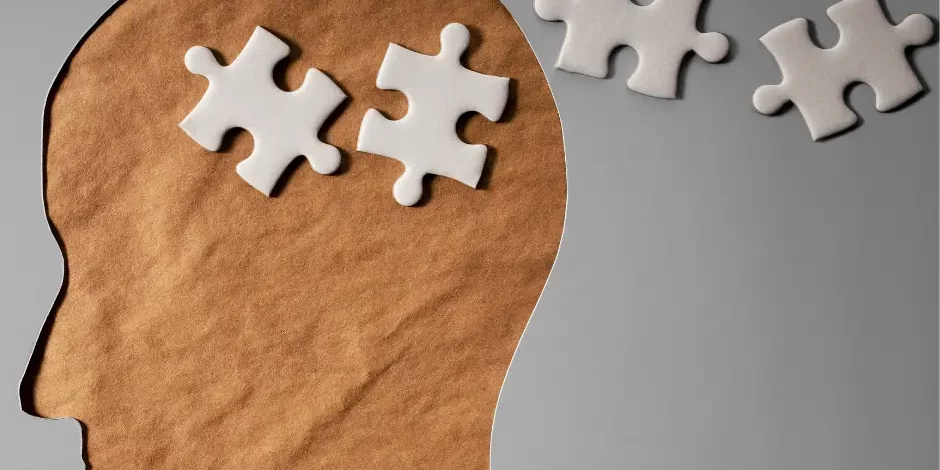Listening to the Signs: How Hearing Loss Contributes to Dementia

The prevalence of dementia, affecting approximately 50 million people worldwide and projected to reach 152 million by 2050, underscores the urgency of addressing this global health issue. Current treatments offer limited success, thus shifting the focus to preventable risk factors. One such factor, age-related hearing loss (ARHL), is gaining attention for its potential role both as a risk factor and a means to improve outcomes in dementia. This comprehensive guide aims to unravel the complex relationship between ARHL and dementia, offering insights into the science behind this connection and practical strategies for managing and potentially mitigating dementia and hearing loss.
Understand more about age-related hearing loss.
Understanding the Science Behind Dementia and Hearing Loss
Hearing loss poses significant challenges to the brain’s ability to process sounds, resulting in a condition known as cognitive load. This strain impacts critical brain areas responsible for memory and thinking. When individuals with hearing loss avoid social interactions to escape communication difficulties, it can lead to reduced brain stimulation and possibly diminish brain areas involved in sound, speech, language processing, and executive functions.
Cognitive Function and Hearing Loss: A Two-Way Street
Hearing loss can deplete cognitive reserve, the brain’s capacity to manage various cognitive demands. This depletion can accelerate the onset of symptoms associated with conditions like Alzheimer’s. Social isolation, often a consequence of hearing loss, further exacerbates the risk of cognitive decline. Moreover, hearing loss can cause changes in brain structure, particularly in areas crucial for language processing and memory, thereby increasing the risk of dementia.

Unraveling the Common Causes of Hearing Loss and Dementia
Age-Related Changes and Their Impact on Hearing and Cognitive Function
Neurodegeneration naturally occurs as we age, affecting our brain and auditory system. This process can lead to impairments in hearing and cognitive functions. Additionally, vascular changes, such as the reduction of blood flow to the brain and inner ear, are common with aging. These changes can contribute significantly to both hearing loss and cognitive decline.
The Role of Chronic Health Conditions in Dementia and Hearing Loss
Chronic health conditions, particularly cardiovascular diseases, notably impact hearing and cognitive health. Conditions like high blood pressure and diabetes, often part of metabolic syndrome, can impair blood flow. This impairment can lead to a dual decline in cognitive abilities and hearing capabilities.
Find out more about diabetes and hearing loss.
Genetic and Environmental Factors
Genetics plays a crucial role in our health. Shared genetic susceptibilities and specific mutations, such as those found in the APOE gene, have been linked to both hearing loss and cognitive decline. Environmental factors also contribute to these conditions. Prolonged exposure to loud noises and social isolation, for example, can lead to the development of hearing loss and cognitive decline.
Other Contributing Causes
Other potential causes include vitamin deficiencies and certain infections, which can harm both the auditory nerve and the brain, resulting in hearing loss and cognitive impairment. Furthermore, head injuries are known to cause damage to both the auditory system and the brain, further exacerbating the risk of these conditions.
Does Dementia Cause Hearing Loss?
While the connection between dementia and hearing loss is evident, whether dementia causes hearing loss remains a subject of ongoing research. Common risk factors like aging, cardiovascular disease, and diabetes suggest a potential link, but the exact nature of the relationship is not yet fully understood.
Understanding these various factors that contribute to hearing loss and cognitive decline sets the stage for exploring effective management strategies. In the following section, we will delve into how to navigate the challenges of dementia and hearing loss, focusing on practical approaches and interventions to improve the quality of life for those affected by these conditions.

Managing the Dual Challenge of Dementia and Hearing Loss
Effectively managing the dual challenges of hearing loss and dementia involves a multifaceted approach. Here are some key strategies that can significantly enhance communication, improve daily functioning, and support the overall well-being of individuals facing these conditions:
- Creating communication-friendly environments.
- Simplifying communication methods.
- Using visual aids to supplement verbal communication.
- Encouraging social interaction and cognitive stimulation.
- Seeking professional guidance from healthcare professionals.
- Involving caregivers in the management process.
- Regularly monitoring cognitive health.
- Focusing on emotional health.
- Creating a supportive atmosphere.
Implementing these strategies can profoundly impact the lives of those dealing with dementia and hearing loss. By fostering an environment conducive to their needs, simplifying communication, encouraging social and cognitive engagement, and ensuring emotional support, we can help improve the quality of life and create a more manageable daily experience for individuals and their caregivers.
Preventive Measures: Slowing Dementia Through Hearing Loss Management
The ACHIEVE Study highlights the potential of hearing interventions in slowing cognitive decline. Addressing hearing loss early, regularly assessing hearing health, managing underlying conditions, protecting hearing from noise, maintaining a healthy lifestyle, engaging in cognitive stimulation, fostering social engagement, and scheduling regular medical checkups are key strategies.
Leveraging Hearing Aids for Improved Cognitive Function
Using hearing aids, particularly for moderate to severe hearing loss, can significantly reduce the risk of dementia. These devices not only enhance auditory stimulation but also encourage social participation.
Actionable Steps for People with Hearing Loss
- Maintain ear health and cleanliness.
- Use hearing aids if needed, ensuring their functionality.
- Stay socially active to boost cognitive stimulation.
By adopting these measures, you can mitigate the risk of dementia and enhance their overall quality of life. This guide serves as a comprehensive resource for understanding and addressing the intertwined challenges of hearing loss and dementia, offering practical advice and insights for those affected by these conditions.
Explore more about protecting your hearing.
Hearing Loss and Dementia: Next Steps
The intricate relationship between hearing loss and dementia presents both challenges and opportunities for better health management. By understanding the various factors contributing to these conditions and adopting a comprehensive approach to their management, individuals can significantly improve their quality of life. If you or a loved one are experiencing symptoms of hearing loss or have concerns about cognitive decline, it is crucial to take proactive steps. Contact Stanford Hearing for a comprehensive assessment and personalized care plan. Early detection and intervention can make a significant difference in managing these conditions effectively. Don’t hesitate to reach out and take control of your hearing and cognitive health today.
